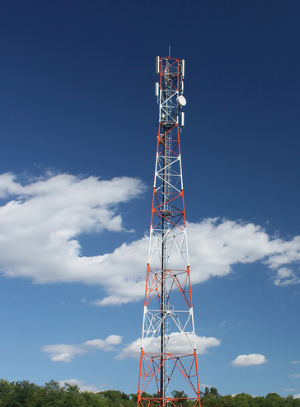News
ICT group welcomes possible entry of 3rd telco player in PH

FILE: The entry of new players in the market would benefit consumers in expanding their access to affordable internet services, according to Information Technology and Business Process Association of the Philippines (IBPAP) president Rey Untal.(Photo: Emilian Robert Vicol/Flickr)telecomm
MANILA — An information and communications technology (ICT) organization welcomed the proposed entry of a third major player in the telecommunications industry, saying this would help improve internet access in the country.
The entry of new players in the market would benefit consumers in expanding their access to affordable internet services, according to Information Technology and Business Process Association of the Philippines (IBPAP) president Rey Untal.
“Healthy competition is welcome.
This only means that there is more access to Internet and even Globe and PLDT can gain access and it’s not exclusive to anybody.
Any step towards creating the environment that stimulates healthy competition, at the end of the day, will really benefit the consumers,” Untal told the Philippine News Agency (PNA) on the sidelines of the media launch of the 12th International ICT Awards held Tuesday at the Marriott Hotel in Pasay City.
President Rodrigo Duterte has offered China the privilege to enter the local telco industry to end the existing duopoly in the country during his recent bilateral meeting with Premier Li Keqiang, according to Presidential Spokesperson Harry Roque.
This announcement came less than a week after the government teamed up with Facebook to put up an “ultra high-speed” broadband infrastructure that aims to provide internet capability equivalent to those being offered by the two major telco players.
On November 15, the Department of Information and Communications Technology (DICT), along with the Bases Conversion and Development Authority (BCDA) and Facebook, signed a deal for the Strategic Engagement and Collaboration to Undertake a Reliable and Efficient Government Internet (SECURE GovNet) project.
The BCDA will be investing more than PHP 900 million to the Luzon Bypass Infrastructure, a bypass route for an international submarine cable network to be built and used by Facebook — allowing the government to tap, in exchange, a spectrum equivalent to two terabits per second (tbps).
The amount will be allocated for the construction of a bypass route and two cable landing stations in Poro Point, La Union and Baler, Aurora providing a secure and disturbance-free route for Facebook-operated submarine cables, which otherwise had to pass through the tumultuous Luzon Strait.
DICT will operate the bypass infrastructure, maintain the related facilities, and provide last-mile connectivity in the Philippines.
The Luzon Bypass Infrastructure will operate for 25 years from 2019 to 2044 and may be renewed 25 years thereafter. (PNA)





















